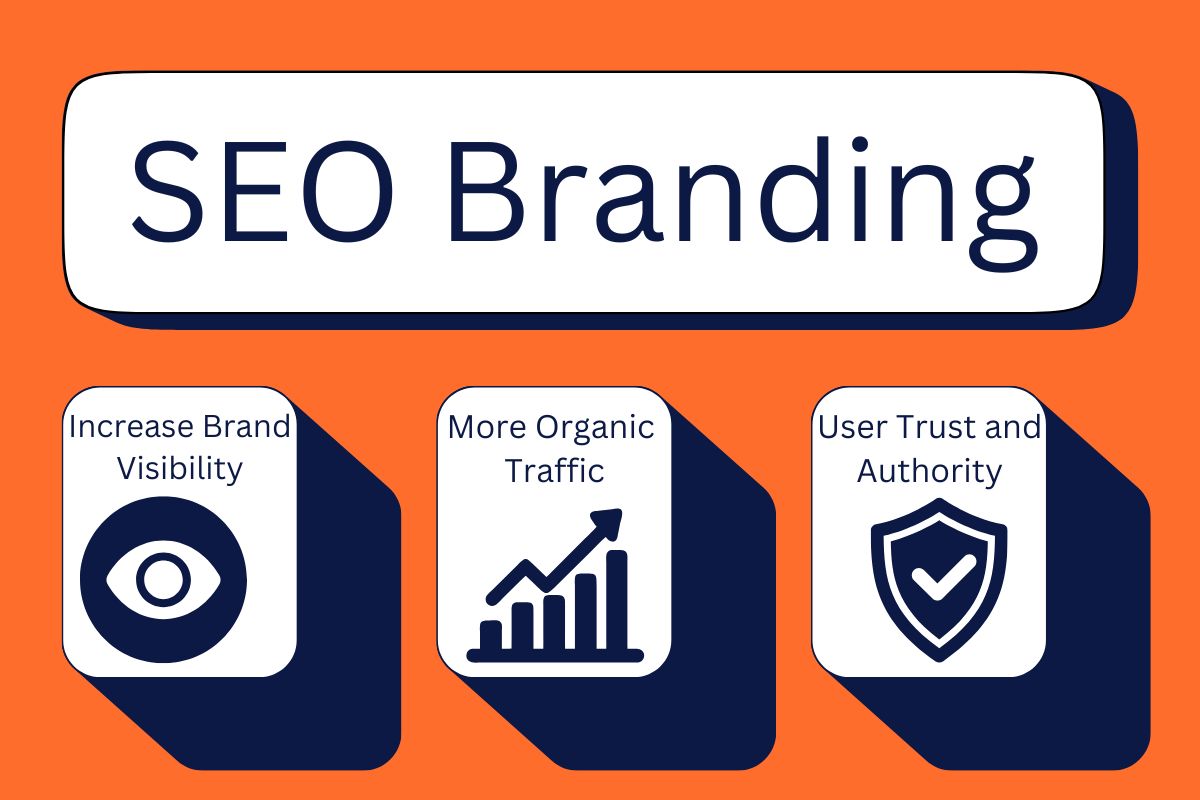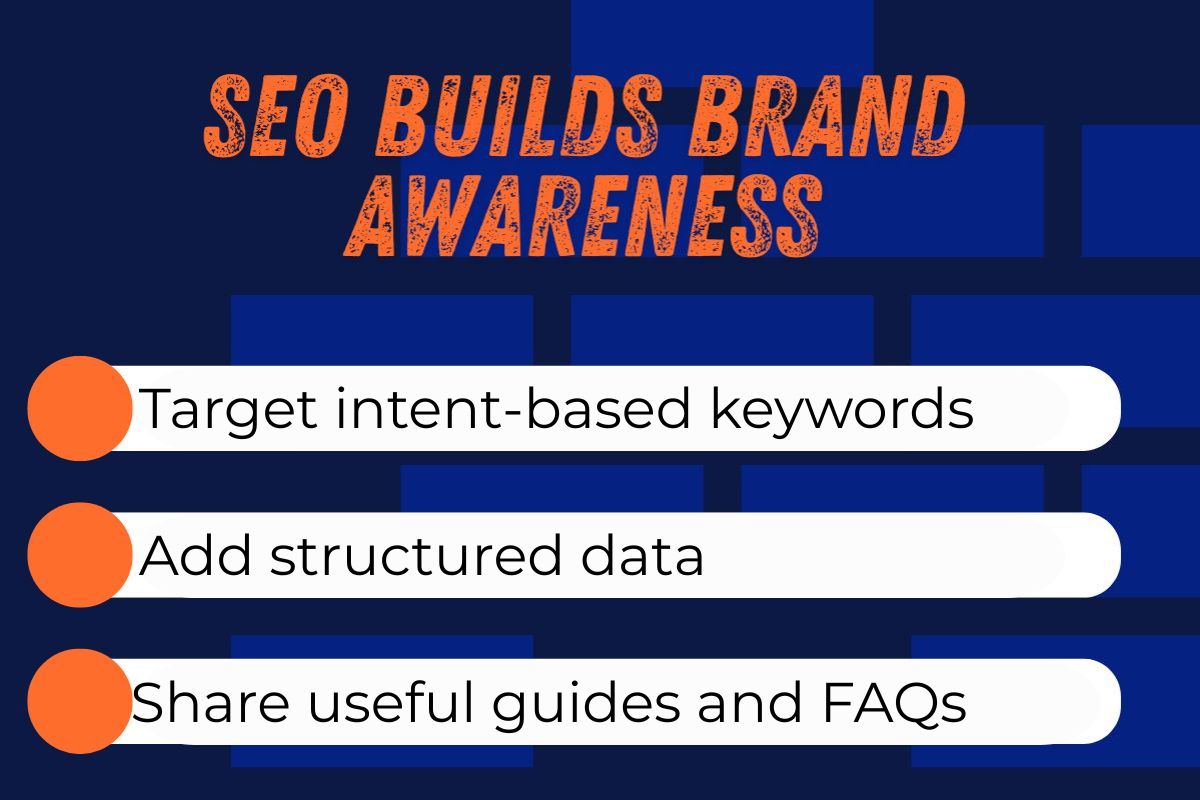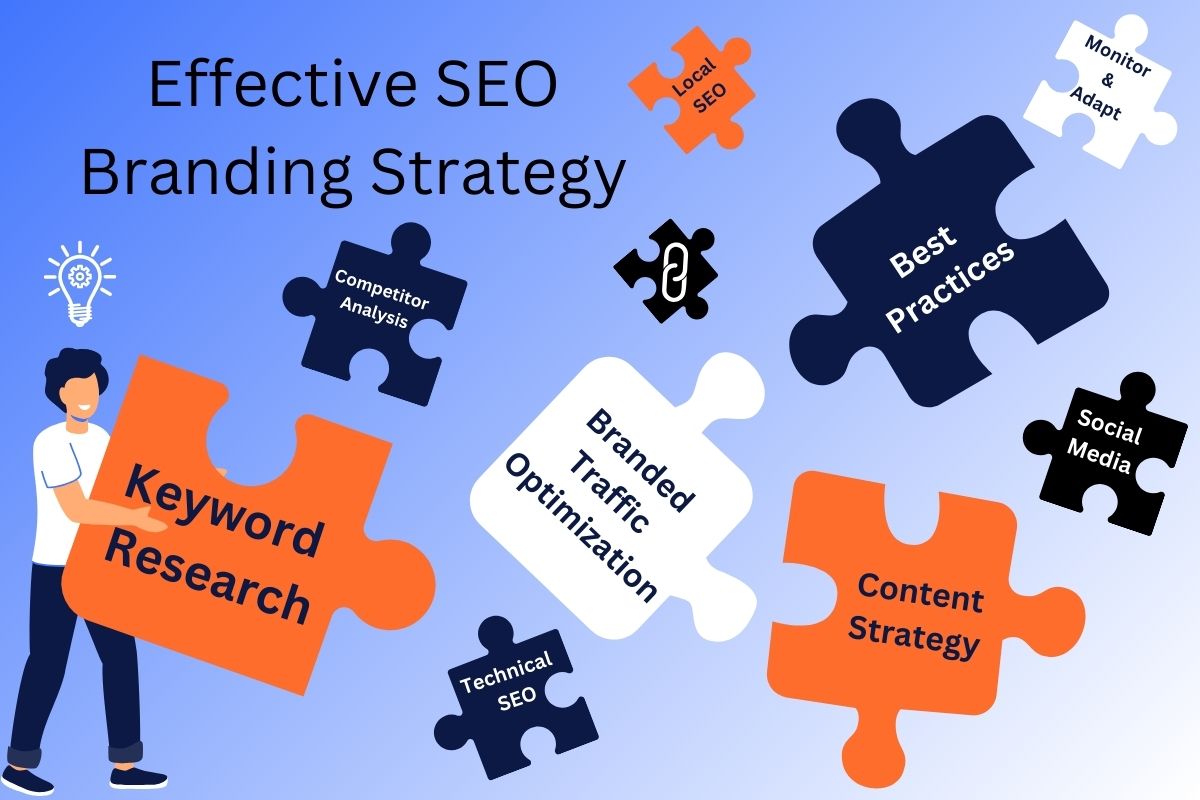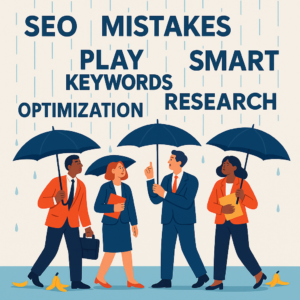Search engines are often the first place people meet your brand. That makes SEO branding more than just a digital marketing tactic. It’s the foundation of how your brand is found, understood, and remembered online.
Done right, it helps you rise in search results, gain trust, and keep customers coming back. In this guide, we break down what modern SEO branding looks like, why it matters, and how to do it right.
What is SEO Branding?
SEO branding is the practice of aligning your search presence with your brand identity. It’s not just about rankings. It’s about making sure your brand shows up in the right searches, with the right message, at the right time.
When someone searches a term related to your business, your site shouldn’t just appear. It should stand out, feel familiar, and reinforce your brand positioning.
How Branding and SEO Work Together
Branding and SEO support each other. SEO brings in visibility. Branding brings in recognition and trust. When you combine them, you’re not just driving traffic—you’re building a connection.
You might be asking: how do you build brand awareness with SEO?
Here’s how:
- Show up consistently for relevant searches
- Deliver value every time someone clicks
- Use your brand voice across titles, content, and metadata
- Create content that speaks to your audience’s intent
This strategy fuels both SEO and brand awareness efforts, strengthening your overall presence online.
Why SEO Branding Matters
If you want people to find your business, remember it, and return, SEO branding is essential. Here’s what it helps you achieve:
1. A Recognizable SEO Brand
When your content appears across multiple high-ranking results, people start to notice. Familiarity leads to trust. Trust leads to clicks.
2. More Organic Traffic
Instead of paying for every visitor, you earn traffic naturally. The more consistent your SEO brand presence is, the more often you’ll show up in searches that matter.
3. Trust and Authority
Search engines look for brand signals—mentions, backlinks, and consistency. The stronger these are, the more credible your site appears.
Still wondering, do branded links affect SEO? Yes. When other trusted sites link to yours using your brand name, it’s a signal that your business is legitimate.

Key Terms You Should Know
What Is a Brand Mention for SEO?
A brand mention is when someone talks about your business online without necessarily linking to it. Google notices these. They help search engines associate your name with specific topics or industries. That’s what is a brand mention for SEO in action.
What Is Branded Traffic in SEO?
It refers to people who search using your brand name or a close variation. It’s a sign of growing awareness. The more branded traffic you get, the stronger your online brand is.
You can monitor this in tools like Google Search Console or GA4.
How SEO Builds Brand Awareness?
How SEO builds brand awareness comes down to consistency and visibility. The more often people see your brand in search results, the more likely they are to remember it. Strong SEO brand awareness helps your business stick in the minds of potential customers.
Strategies That Work:
- Optimize every piece of content for relevant, intent-based keywords
- Use structured data to help search engines understand your brand
- Publish guides, resources, and FAQs that your audience actually needs
Even if users don’t click the first time, repeated exposure creates familiarity, which is a major step toward trust.

How to Create an Effective SEO Branding Strategy
A good SEO branding strategy is clear, consistent, and data-informed. Here’s a step-by-step breakdown:
1. Keyword Research
Start with the basics: What are branded keywords in SEO? These are search terms that include your brand name or something strongly tied to it.
Mix in non-branded but relevant, high-intent keywords that match your services or products.
2. Content Strategy
- Write in your brand’s voice
- Target both branded and unbranded keywords
- Focus on value: answer questions, solve problems, offer insights
- Use a mix of formats: blogs, videos, infographics
This ensures your SEO and branding goals align in every piece of content.
3. On-Site Optimization
Make sure your technical SEO is tight:
- Mobile responsiveness
- Fast load times
- Clean navigation
- Clear structure and internal linking
Need help? Here’s how to choose a good SEO company that fits your goals.
4. Competitor Research
Look at what other brands in your space are doing. Where are they ranking? What keywords do they own? Find the gaps and make them your strength.
5. Local SEO (If Applicable)
If you’re focused on a region, optimize for that area. Wondering how to pick a brand for local SEO? It starts with name consistency across platforms and a complete Google Business Profile.
6. Social Media Support
Social doesn’t directly affect rankings, but it helps people discover and share your content. The more people interact with your brand, the more visible you become.
7. Backlink Strategy
Focus on relevance and quality. A few great links are better than dozens of low-quality ones. Outreach, guest posts, and shareable assets (like original data or templates) can help.
8. Track and Adapt
Use tools to track your branded traffic, keyword rankings, and engagement. Keep refining your content based on what works.

Common SEO Branding Questions
Can a Brand Have More Than One Website SEO?
Yes, but only if each site serves a distinct purpose. Avoid duplicate content and clearly differentiate it to search engines. So, can a brand have more than one website SEO? It’s possible, but it must be managed carefully.
Can You Target Another Company’s Brand Name SEO?
Technically, yes—but it’s risky. It may raise legal or ethical concerns. Better to focus on building your own SEO brand.
How Branding Affects SEO
How branding affects SEO is simple: it drives better click-through rates, more quality backlinks, and stronger user signals—all of which support search rankings.
SEO vs. PPC: Which Builds a Better Brand?
Both aim to make your brand visible—but who wins the SEO vs. PPC battle?
SEO builds trust and authority over time. It’s a long-term investment that keeps paying off without continuous ad spend. PPC delivers instant visibility, but only while you’re funding it.
Final Thoughts
If your goal is a trustworthy, visible, and memorable brand, start with SEO. It gives you long-term visibility, stronger brand recognition, and organic growth.
Whether you’re starting from scratch or refining what you have, a focused SEO branding strategy can change the way people see your business.
Strong SEO and brand awareness alignment lead to higher rankings and deeper engagement.
Looking to grow your SEO brand the right way? Indexed Zone SEO has your back.



